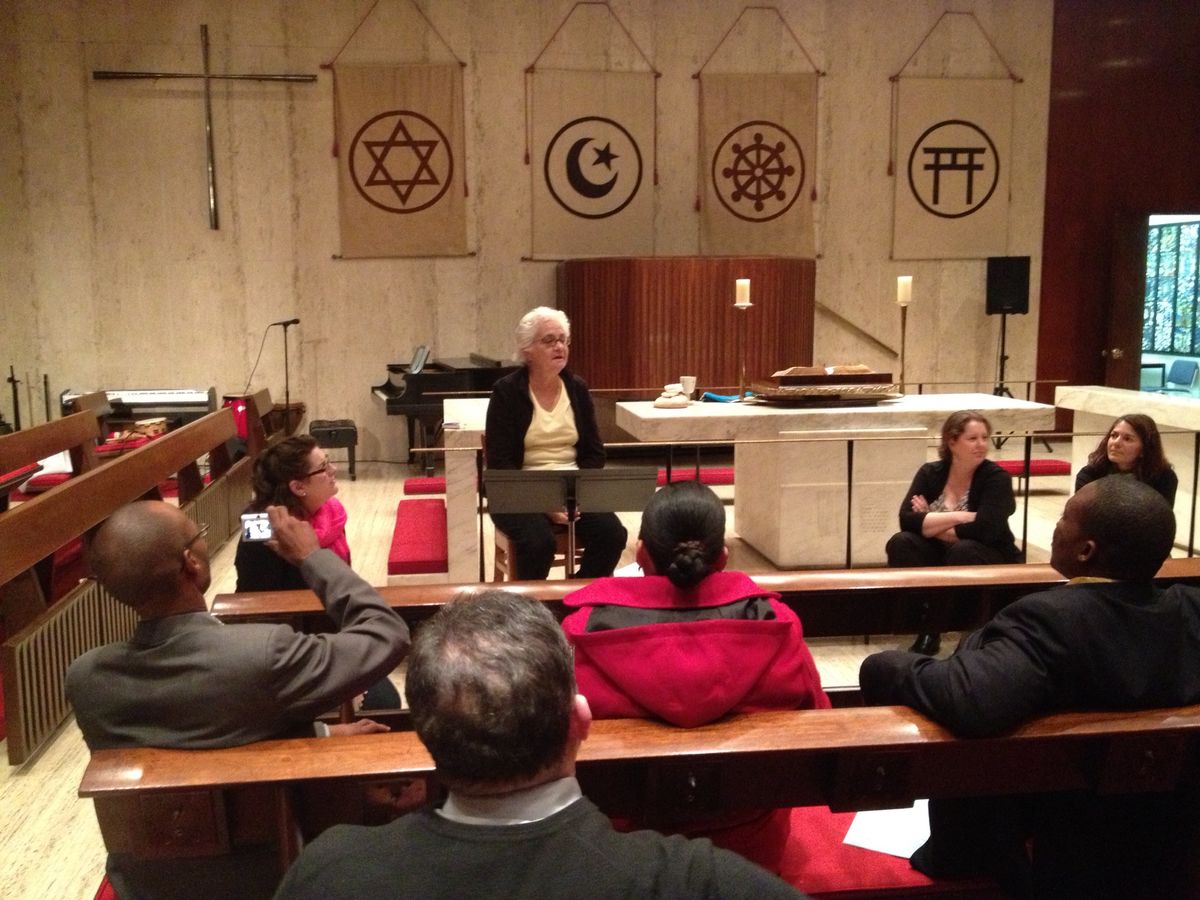Religious Freedom
Every religious group should be able to exercise its faith free from legal, political, or economic restrictions.

United Methodists follow a Savior who served and respected all people. Jesus ate with a tax collector, honored the faith of the Syrophoenician woman, and named the good Samaritan as more righteous than the religious leaders of his day. Jesus affirmed that every person has inherent worth and dignity.
Religious freedom reinforces, rather than diminishes, other human rights and the overarching dignity and rights of all persons. We have this dignity because each of us is created in the image of God. Being free to choose one’s belief and practice, or none at all, is part of this sacred worth.
We assert the right of all religions and their adherents to freedom from legal, economic, and social discrimination.
United Methodist Social Principles, ¶162.BThe United Methodist Church acknowledges that, historically, it has not practiced religious freedom for all. Instead of supporting the dignity and freedom of all, the church and Christians throughout history and into the present have used religion to target and oppress others.
In the face of this history and current reality, The United Methodist Church states its commitment to religious freedom. We oppose any claims to the right to impose one set of religious beliefs onto others. We stand against the persecution of anyone — Christians, Muslims, Jews, LGBTQ people, women, and others — in the name of religion. We oppose all cases where religious freedom is ignored and abused.
What the Bible and The United Methodist Church Say:
The Bible makes clear that, as part of their created nature, humankind is made in the image of God: “Then God said, ‘Let us make humankind in our image, according to our likeness…So God created humankind in his image, in the image of God he created them; male and female he created them.” (Genesis 1:26-27)
“Religious persecution has been common in the history of civilization. We urge policies and practices that ensure the right of every religious group to exercise its faith free from legal, political, or economic restrictions. We condemn all overt and covert forms of religious intolerance, being especially sensitive to their express and media stereotyping. We assert the right of all religions and their adherents to freedom from legal, economic, and social discrimination.” (Social Principles, ¶162.B)
“The United Methodist Church must continue to foster further cooperation among spiritual, religious, and ecumenical bodies for the protection of religious freedom and belief. It must enter into healthy dialogues with peoples of differing faiths and ideologies, including Native and indigenous peoples, in the search for the shared spiritual, social, and ethical principles that engender peace and justice…United Methodists must urge their governments and encourage civil society to enter into dialogues about racism and discrimination and resolve to address especially those concerns that have institutionalized religious bases. (Book of Resolutions, 6025)
Three Things You Can Do:
- Participate in International Religious Freedom Day on October 27.
- Have your church make an explicit affirmation of support for those who are currently persecuted for their religion — or are persecuted by religions or religious figures — where you live. Infractions on the religious freedom of one threatens the religious freedom of all.
- Advocate for laws that prohibit infringements on religious freedom. Oppose laws, policies, and mindsets that seek to use religion to oppress the rights of others, be they religious minorities or other groups or individuals in society.
Related Resources
For more information on Religious Freedom, visit:
- The Religious Freedom Center
- The U.S. Department of State Office of International Religious Freedom
- The Baptist Joint Committee for Religious Liberty
- United Methodist Book of Resolutions:
- 3291 Called to be Neighbors and Witnesses: Guidelines for Interreligious Relationships
- 3324 Trail of Repentance and Healing
- 3331 Doctrine of Discovery
- 3333 Native American Religious Freedom Act
- 3334 Regarding Native American Culture and Traditions as Sacred
- 3284 Faithfulness in Response to Critical Needs
- 3292 United Methodist Guiding Principles for Christian-Jewish Relations
- 5012 Church-Government Relations
- 6025 Globalization and Its Impact on Human Dignity and Human Rights